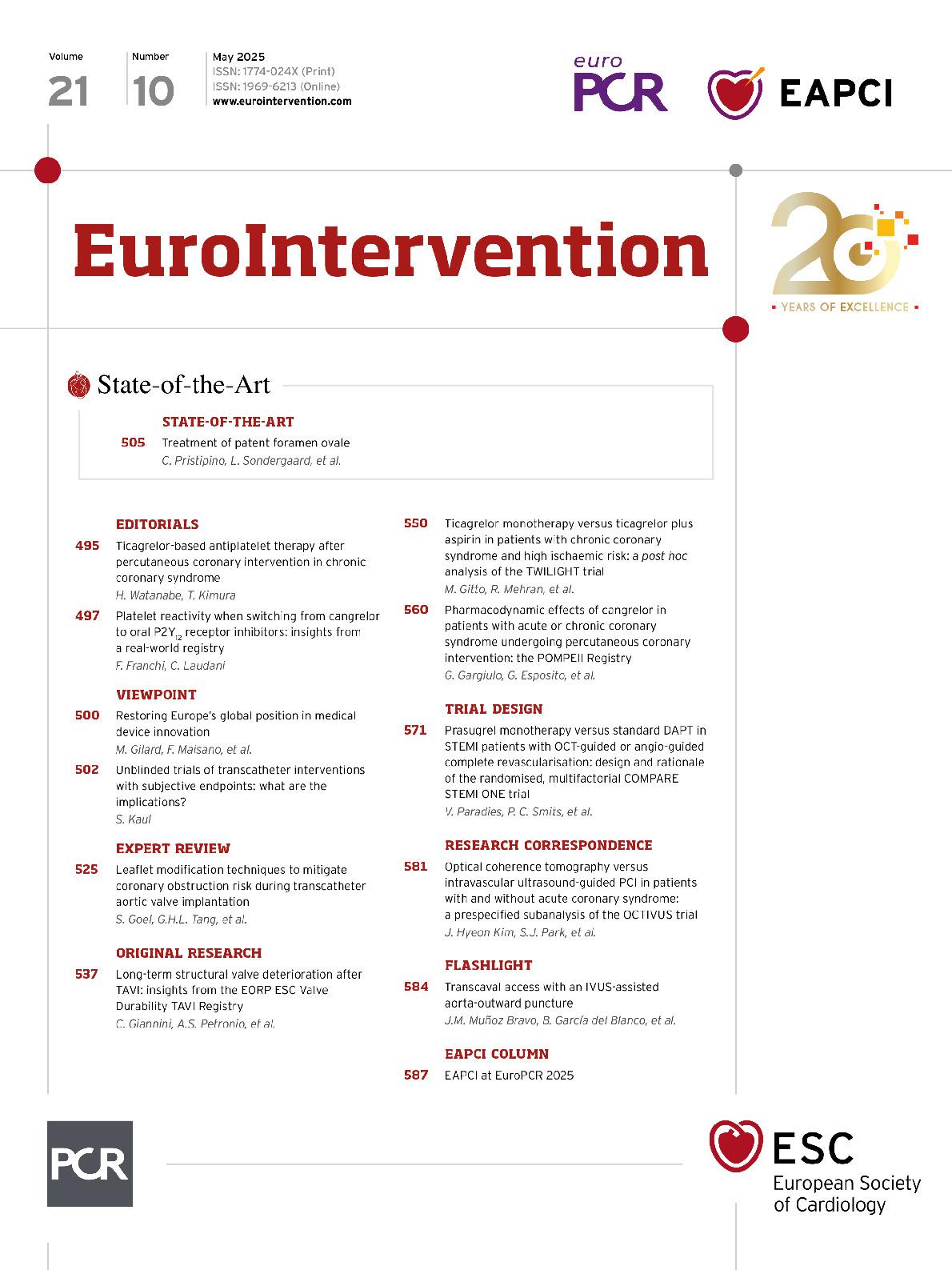Unlike patients with acute coronary syndrome (ACS), in whom relatively urgent invasive treatment is favoured, lifestyle guidance and optimal drug treatment are prioritised in patients with chronic coronary syndrome (CCS), and the decision to proceed to coronary revascularisation is more dependent on symptom status and patient preference1. Current guidelines recommend a default antithrombotic strategy of 6-month clopidogrel-based dual antiplatelet therapy (DAPT) after percutaneous coronary intervention (PCI) for CCS patients without high bleeding risk; the use of potent P2Y12 inhibitors, such as prasugrel and ticagrelor, is recommended only for patients with high ischaemic risk. Nevertheless, compared with patients with ACS, those with CCS more often have high-risk demographics or clinical features, such as advanced age, multivessel disease, or chronic total occlusion, and complex PCI procedures are often required in CCS patients2. The appropriate antithrombotic management for CCS patients undergoing PCI is still under discussion.
The TWILIGHT trial enrolled 7,119 patients with either ACS or CCS, who had trial-defined high-risk features and experienced no significant clinical events during the initial 3-month DAPT following PCI3. These patients were randomly assigned to...
Sign up for free!
Join us for free and access thousands of articles from EuroIntervention, as well as presentations, videos, cases from PCRonline.com

